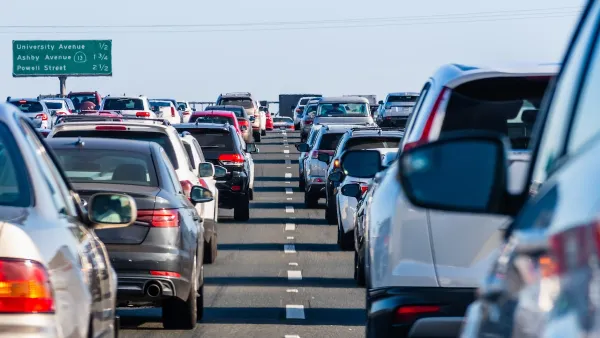Momentum Mag picks up the news of a study out of Harvard University that will produce more than one double take.

"Since biking burns fat and not fossil fuels, most everyday cyclists are comfortable with the notion that their commute is a daily contribution to the global fight against climate change," writes Hilary Angus to begin an article in Momentum Mag. But that assumption about the environmental friendliness of riding bikes only sets up the drama of the post:
In findings published through Harvard University’s Keith Group, [Daniel] Thorpe singles out cyclists who consume diets heavy in animal byproducts – specifically those who follow the Paleo Diet – as being more harmful to the environment than individuals who eat plant-based diets and drive low-emission vehicles.
Basically, your bacon-fueled bike commute is killing the planet, so you best be trading in that Schwinn for a Prius and a pile of chickpeas.
Angus goes on to explain the methodology of the study, which relies on measures known as carbon dioxide equivalents (CO2e) and Global Warming Potential (GWP). Thorpe's conclusions also take into account the land use impact of the different travel and diet modes. According to Thorpe's writing in the study, his work is really about the huge effect of agricultural practices on the environment.
Angus concludes the article with a critique of the study, but is also willing to say: "you really shouldn't be eating a Paleo diet."
FULL STORY: Cycling Can Be Less Sustainable than Driving, Argues Harvard Researcher

National Parks Layoffs Will Cause Communities to Lose Billions
Thousands of essential park workers were laid off this week, just before the busy spring break season.

Retro-silient?: America’s First “Eco-burb,” The Woodlands Turns 50
A master-planned community north of Houston offers lessons on green infrastructure and resilient design, but falls short of its founder’s lofty affordability and walkability goals.

Delivering for America Plan Will Downgrade Mail Service in at Least 49.5 Percent of Zip Codes
Republican and Democrat lawmakers criticize the plan for its disproportionate negative impact on rural communities.

Test News Post 1
This is a summary

Test News Headline 46
Test for the image on the front page.

Balancing Bombs and Butterflies: How the National Guard Protects a Rare Species
The National Guard at Fort Indiantown Gap uses GIS technology and land management strategies to balance military training with conservation efforts, ensuring the survival of the rare eastern regal fritillary butterfly.
Urban Design for Planners 1: Software Tools
This six-course series explores essential urban design concepts using open source software and equips planners with the tools they need to participate fully in the urban design process.
Planning for Universal Design
Learn the tools for implementing Universal Design in planning regulations.
EMC Planning Group, Inc.
Planetizen
Planetizen
Mpact (formerly Rail~Volution)
Great Falls Development Authority, Inc.
HUDs Office of Policy Development and Research
NYU Wagner Graduate School of Public Service





























